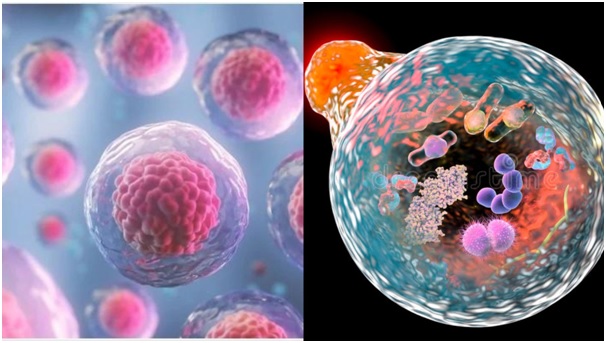Autophagy is the process of cleaning out old and damaged cellular components. This can help us maintain healthy cells and prevent disease. In this article, we’ll explore what autophagy is, how it works in our bodies, and its role in health span.

Keeps You Alive
On a daily basis, millions of cellular processes take place in the human body, but what is autophagy? It’s a process where our cells get rid of damaged proteins, organelles, and other cellular junk. This helps keep us alive by recycling old materials back into the body so they can be used again. It’s essential because our bodies don’t have any mechanisms for recycling damaged cells—so this process is essential for keeping us healthy and robust.
Cancer and Aging
Autophagy is essential for preventing cancer. Autophagy kicks in when cells are damaged or stressed to clear away damaged or unused parts of the cell. This process helps prevent cancer from forming damaged cells, which can then be replaced with healthy ones. Autophagy also plays a role in preventing aging and neurodegenerative diseases like Alzheimer’s disease.
Nutrition
Nutrition is a critical factor in autophagy. The body uses nutrients like amino acids, vitamins, and minerals to support autophagy, which is why maintaining a healthy diet can help you live longer and healthier.
Sleep and Exercise
Sleep and exercise play a role in autophagy. The two are closely linked, with sleep influencing autophagy during the night while exercise can increase it during the day. Sleep helps reduce stress levels by increasing your body’s melatonin production, which promotes relaxation and reduces oxidative stress. Exercise increases blood flow to muscles and encourages the release of growth hormones.
Continuous Process
Autophagy is a normal, healthy process that occurs in our cells all the time—whether we’re hungry or full. It’s a self-defense mechanism that helps keep our cells healthy by removing cellular gunk.
Intermittent Fasting
Intermittent fasting is a way to reduce your calorie intake or eat less. This can be done by restricting your eating window to 12 hours or less daily. You can also do this by skipping meals, but this will require more planning and effort than the alternate method.
Intermittent fasting has been shown to increase autophagy in several studies; however, it’s important to note that there are no guarantees with this dieting approach—it may not work for you.
Quality of Sleep
Autophagy is a process by which your body recycles old cells for use in new ones. When you’re sleeping well, this recycling happens naturally. However, if you’re not getting enough sleep due to shift work at night or artificial light from computers at home, then autophagy becomes less effective, and we end up with more damaged cells than normal.
If you want to optimize your health, autophagy is a powerful tool. It can help you combat aging, fight cancer, and keep your body running smoothly. Therefore, maintain a healthy diet, exercise regularly, and develop a sound sleep pattern.
